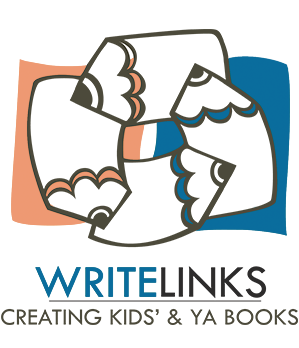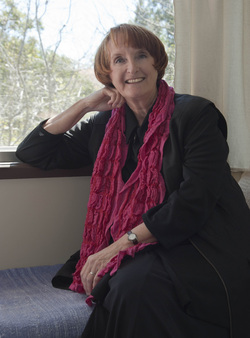Pamela Rushby on writing and her latest novel: The Ratcatcher’s Daughter
Brisbane children’s writers are lucky. Pamela Rushby is a local children’s writer with many years of experience and over a hundred published books. Quite a few Write Links members have met Pamela Rushby during various conferences and children’s writing events where she is very generous in sharing her experience and is a lovely person to talk to. She even came
to the first Write Links meeting. She is a great supporter of new and emerging children’s writers and we are honoured to ask her some questions.
Her YA historical fiction novel, Flora’s War, has just received a notable mention on the CBCA Book of the Year website.
And her new book, The Ratcatcher’s Daughter, has just been released.
to the first Write Links meeting. She is a great supporter of new and emerging children’s writers and we are honoured to ask her some questions.
Her YA historical fiction novel, Flora’s War, has just received a notable mention on the CBCA Book of the Year website.
And her new book, The Ratcatcher’s Daughter, has just been released.
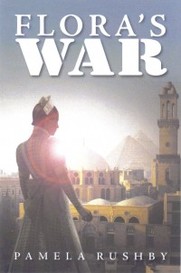
You are an extremely versatile, prolific and diverse writer. You have written travel stories for adults, write for screen and television, have published anything from picture books to young adult novels and write fiction and non-fiction for the educational market.
Did you actively seek out this diversity?
I sometimes say I’ll write anything anyone is prepared to pay me for.
Some of these genres came about because of my various jobs. But it’s fun to write in different genres, and keeps you from getting stale. But I especially like writing historical fiction for upper primary/lower secondary, mainly because I just love doing the research.
Did you actively seek out this diversity?
I sometimes say I’ll write anything anyone is prepared to pay me for.
Some of these genres came about because of my various jobs. But it’s fun to write in different genres, and keeps you from getting stale. But I especially like writing historical fiction for upper primary/lower secondary, mainly because I just love doing the research.
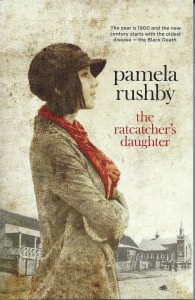
Your new book, The Ratcatcher’s Daughter, has just been released. How long has it been since submitting this book and publication? And what is involved in getting a book ready for release?
It took over a year from the time the outline was accepted by the publisher. But I was thinking about it for much, much longer than that.
When a book’s about to be released, the publicity section from the publisher does a lot of publicity – but I also do my own, locally. I contact book shops, radio stations, newspapers with media releases … just a media tart, really.
How do you come up with your ideas/ topics for historical fiction?
I literally trip over them. Anything I read/view/see that makes me say “That’s interesting” has potential for a story. “Flora’s War” and “Ratcatcher” both came from old photographs I saw. “The Horses Didn’t Come Home” from a trip to Beersheba with my husband’s old Light Horse unit. “When the Hipchicks Went to War” from reading a non-fiction book about the Australian women in Vietnam during the Vietnam War . The possibilities are endless.
It took over a year from the time the outline was accepted by the publisher. But I was thinking about it for much, much longer than that.
When a book’s about to be released, the publicity section from the publisher does a lot of publicity – but I also do my own, locally. I contact book shops, radio stations, newspapers with media releases … just a media tart, really.
How do you come up with your ideas/ topics for historical fiction?
I literally trip over them. Anything I read/view/see that makes me say “That’s interesting” has potential for a story. “Flora’s War” and “Ratcatcher” both came from old photographs I saw. “The Horses Didn’t Come Home” from a trip to Beersheba with my husband’s old Light Horse unit. “When the Hipchicks Went to War” from reading a non-fiction book about the Australian women in Vietnam during the Vietnam War . The possibilities are endless.
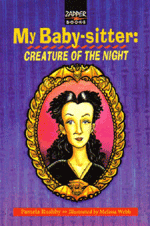
Do you ever get writer’s block?
A deadline is a wonderful source of energy. (That and the thought of the cheque at the end …) But seriously, folks, if you’re stuck, it often indicates there’s a problem with the story. Try to identify that, and find a solution.
I was excited to learn you produced Book Links’ The Travelling Suitcases series. Are you as fascinated by other writer’s lives and work spaces as most of us in our writer’s group are?
I loved working with other authors and seeing their work places and how they work. For the same reason, I go to writers’ festivals and watch other authors give their talks. I always learn heaps.
Are there any writers and/ or illustrators that you haven’t met yet, but would love to?
I’d love to meet them all! It’s always fascinating to hear about the ways other people work.
Could you share some tips for new and emerging children’s writers?
Never, ever give up. We’ve all had rejections. Someday you’ll find the publisher/editor who’s right on your wavelength (and live happily ever after).
What are you working on at the moment?
I’ve just been commissioned to write four books for an educational publisher. For myself, I’m waiting to hear back from a publisher to see if they’re interested in my proposal for a historical novel about girls who joined the Australian Women’s Land Army in WW2.
Any tips on finding an agent for emerging writers?
Not easy. I got mine because a TV producer was interested in a children’s novel I wrote, and he took out an option. An agent needs to know you’re going to bring some money in for them. Often you have to get your first deal before an agent will be willing to take you on. You can exist without one. (Having said that, I just love mine because she knows absolutely everything about contracts.)
A deadline is a wonderful source of energy. (That and the thought of the cheque at the end …) But seriously, folks, if you’re stuck, it often indicates there’s a problem with the story. Try to identify that, and find a solution.
I was excited to learn you produced Book Links’ The Travelling Suitcases series. Are you as fascinated by other writer’s lives and work spaces as most of us in our writer’s group are?
I loved working with other authors and seeing their work places and how they work. For the same reason, I go to writers’ festivals and watch other authors give their talks. I always learn heaps.
Are there any writers and/ or illustrators that you haven’t met yet, but would love to?
I’d love to meet them all! It’s always fascinating to hear about the ways other people work.
Could you share some tips for new and emerging children’s writers?
Never, ever give up. We’ve all had rejections. Someday you’ll find the publisher/editor who’s right on your wavelength (and live happily ever after).
What are you working on at the moment?
I’ve just been commissioned to write four books for an educational publisher. For myself, I’m waiting to hear back from a publisher to see if they’re interested in my proposal for a historical novel about girls who joined the Australian Women’s Land Army in WW2.
Any tips on finding an agent for emerging writers?
Not easy. I got mine because a TV producer was interested in a children’s novel I wrote, and he took out an option. An agent needs to know you’re going to bring some money in for them. Often you have to get your first deal before an agent will be willing to take you on. You can exist without one. (Having said that, I just love mine because she knows absolutely everything about contracts.)
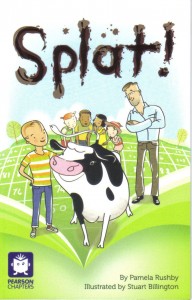
How and when do you know your manuscript is ready for submission?
I wish I knew. I guess when you read over it again and only change a comma, or something. But then, the editor will read it and send pages of comments and questions.
What are the benefits of writing for the educational market?
Steady work. And the money. And they’re always interesting to write – I learn so much! (Just recently, I had to watch parliamentary question time on TV for research. I had no idea how it worked before. I know now!)
And what is the best way to get into this market?
Best way to get in? Check out the publishers you’d like to work for, write to them asking if you could be put onto their list of possible authors the next time they send out briefs. Send them work you’ve had published/samples so they can see how you write. And the best of luck.
You have a strong interest in writing historical fiction which includes an enormous amount of research. Could you share some of your processes when researching a novel?
I go to libraries like the John Oxley Library, the City Council archives. I usually start with general works about the period I’m interested in. They will have bibliographies of their sources and you can follow those up. When I’m down to specific information, I’ve used books like “Tales of a Rat Hunting Man” (which taught me how to train and work rat-killing terriers) and “A Family Undertaking” (a history of a family undertaking business). Don’t be afraid to approach people/institutions directly to ask for information – everyone loves children’s authors, and they’re amazingly generous with their time. I’ve had a back-room tour of the Jerusalem Zoo in this way! It’s also amazing what you can find on the internet, too, eg a first-person account of the “plague panic” of 1900 written by one of the medical officers from the quarantine hospital. I cheer when I find stuff like this. Pure gold!
We noticed you have been successful in securing several writing grants. Which do you recommend and is that something emerging writers should look at?
You win some, you lose some. My advice here is, you don’t get what you don’t ask for. There are some grants specifically for emerging writers. If you belong to the Queensland Writers Centre, upcoming grants are often flagged in their magazine.
Thank you, Pamela! I am looking forward to buying my copy of The Ratcatcher’s Daughter during the launch at the Sydney SCBWI conference in July.
For more information on Pamela Rushby visit her website.
Yvonne Mes
I wish I knew. I guess when you read over it again and only change a comma, or something. But then, the editor will read it and send pages of comments and questions.
What are the benefits of writing for the educational market?
Steady work. And the money. And they’re always interesting to write – I learn so much! (Just recently, I had to watch parliamentary question time on TV for research. I had no idea how it worked before. I know now!)
And what is the best way to get into this market?
Best way to get in? Check out the publishers you’d like to work for, write to them asking if you could be put onto their list of possible authors the next time they send out briefs. Send them work you’ve had published/samples so they can see how you write. And the best of luck.
You have a strong interest in writing historical fiction which includes an enormous amount of research. Could you share some of your processes when researching a novel?
I go to libraries like the John Oxley Library, the City Council archives. I usually start with general works about the period I’m interested in. They will have bibliographies of their sources and you can follow those up. When I’m down to specific information, I’ve used books like “Tales of a Rat Hunting Man” (which taught me how to train and work rat-killing terriers) and “A Family Undertaking” (a history of a family undertaking business). Don’t be afraid to approach people/institutions directly to ask for information – everyone loves children’s authors, and they’re amazingly generous with their time. I’ve had a back-room tour of the Jerusalem Zoo in this way! It’s also amazing what you can find on the internet, too, eg a first-person account of the “plague panic” of 1900 written by one of the medical officers from the quarantine hospital. I cheer when I find stuff like this. Pure gold!
We noticed you have been successful in securing several writing grants. Which do you recommend and is that something emerging writers should look at?
You win some, you lose some. My advice here is, you don’t get what you don’t ask for. There are some grants specifically for emerging writers. If you belong to the Queensland Writers Centre, upcoming grants are often flagged in their magazine.
Thank you, Pamela! I am looking forward to buying my copy of The Ratcatcher’s Daughter during the launch at the Sydney SCBWI conference in July.
For more information on Pamela Rushby visit her website.
Yvonne Mes
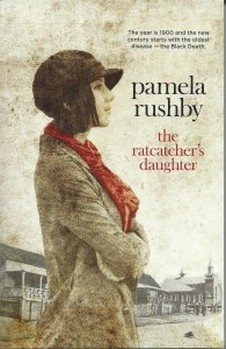
The Ratcatcher’s Daughter
It’s 1900. Thirteen-year-old Issy McKelvie leaves school and starts her first job – very reluctantly – as a maid in an Undertaking Establishment.
Issy thinks this is about as low as you can go. But something worse, much worse, is coming, as a very unwelcome visitor arrives in Australia.
It’s the plague, the Black Death, carried by the fleas on rats.
Issy loathes both rats and her father’s pack of yappy, snappy, hyperactive rat-killing terriers. But when her father becomes ill, it’s up to Issy to become an unwilling ratcatcher, and to join the battle to rid the city of the plague-carrying rats.
However, many things about the city’s control of the plague are not as they seem. Issy comes to realise that the real world is very different from the one she thought she knew …
It’s 1900. Thirteen-year-old Issy McKelvie leaves school and starts her first job – very reluctantly – as a maid in an Undertaking Establishment.
Issy thinks this is about as low as you can go. But something worse, much worse, is coming, as a very unwelcome visitor arrives in Australia.
It’s the plague, the Black Death, carried by the fleas on rats.
Issy loathes both rats and her father’s pack of yappy, snappy, hyperactive rat-killing terriers. But when her father becomes ill, it’s up to Issy to become an unwilling ratcatcher, and to join the battle to rid the city of the plague-carrying rats.
However, many things about the city’s control of the plague are not as they seem. Issy comes to realise that the real world is very different from the one she thought she knew …

